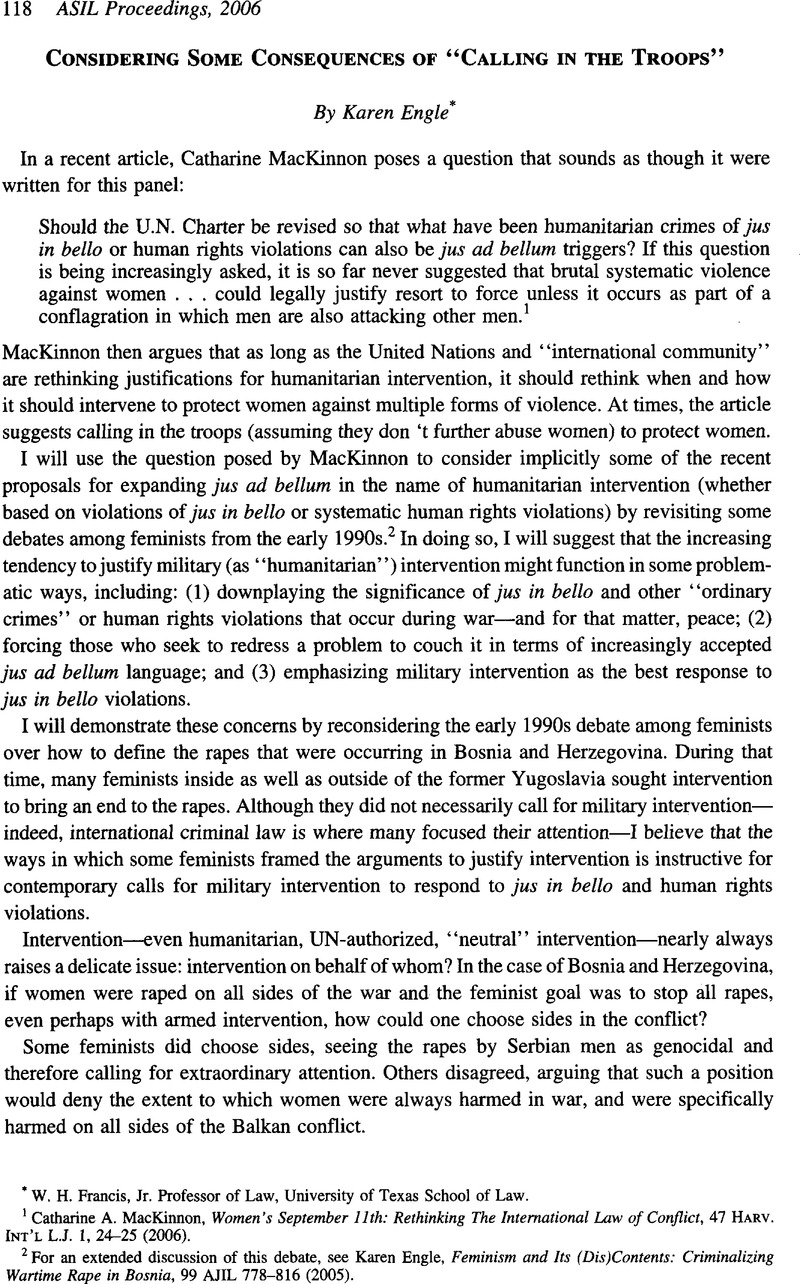No CrossRef data available.
Published online by Cambridge University Press: 28 February 2017

1 MacKinnon, Catharine A., Women’s September 11th: Rethinking the International Law of Conflict, 47 Harv. Int’l L. J. 1, 24-25 (2006)Google Scholar.
2 For an extended discussion of this debate, see Engle, Karen, Feminism and its (Dis)Contents: Criminalizing Wartime Rape in Bosnia, 99 AJIL 778-816 (2005)CrossRefGoogle Scholar.
3 See, e.g., MacKinnon, Catharine A., Rape, Genocide, and Women’s Human Rights, in Mass Rape: The War Against Women in Bosnia-Herzegovina 183, 190 (Stiglmayer, Alexandra ed., 1994)Google Scholar [hereinafter Mass Rape] (“Like all rape, genocidal rape is particular as well as part of the generic, and its particularity matters. This is ethnic rape as an official policy of war in a genocidal campaign for political control.”).
4 Id. at 189.
5 Rhonda Copelon, Surfacing Gender: Reconceptualizing Crimes Against Women in Time of War, in Mass Rape, supra note 3, at 197, 198.
6 Koskenniemi, Martti, ‘The Lady Doth Protest Too Much ‘: Kosovo, and the Turn to Ethics in International Law, 65 Mod. L. Rev. 159, 171 (2002)CrossRefGoogle Scholar.
7 Id. at 173.
8 Batinic, Jelena, Feminism, Nationalism, and War: The Yugoslav Case in Feminist Texts, 3 J. Int’l Women’s Stud. (2001), at <http://www.bridgew.edu/SoAs/jiws/fall01/batinic.pdf> (endnote omitted)Google Scholar.
9 Kennedy, David, The Dark Sides of Virtue: Reassessing International Humanitarianism 351 (2005)Google Scholar.